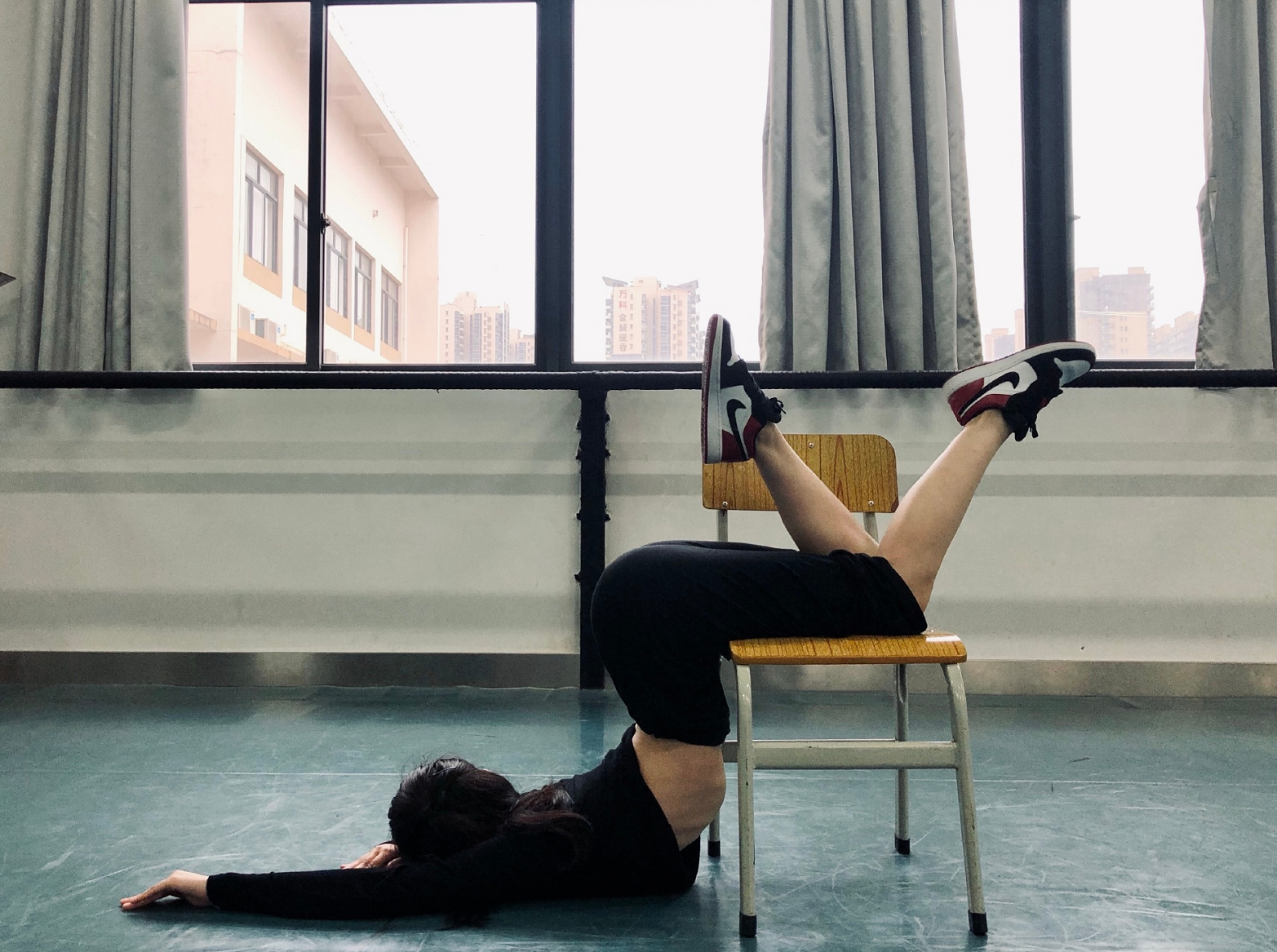
What’s trending?
A fitness campaign called the “manga waist challenge” has burst onto China’s social media platforms, with millions posting photographs of themselves lying stretched at a 90-degree-angle.
Related hashtags have been read more than 400 million times by Weibo users, and have led to heated discussion on body shaming and health issues.
What is the story?
The “challenge” is to prove one’s thinness and litheness through a yoga pose that requires a person to lie with their chest to the floor and place their knees and legs on a chair behind them.
Many female social media users, including Chinese movie star Yang Mi, have participated by posting photos of themselves performing the pose. However, soon after the trend went viral, yoga professionals began issuing warnings that the intimidatingly difficult position was “a dangerous act.”
The “manga waist” position will lead to hyperextension of the back and increase the risk of acute muscle and tendon injury,” according to a post on DXY.com, an anti-misinformation platform run by medical professionals in China.
There have also been comments from psychologists suggesting that the challenge may promote an “unhealthy portrait” of beauty. According to their analysis, the trend will reinforce the seeming importance of shape and weight and lead to eating disorders and other mental struggles.
On Monday, Yang removed the waist challenge post and apologized amid criticism from professionals and netizens, saying she participated in the challenge on a whim. “I had been so inconsiderate in posting the photo,” she wrote on Weibo, “I was just informed that, without professional guidance, stretching in such posture may trigger injury.”
What are people saying online?
The campaign has spawned 15 million active discussions. With a few participants showing off their success at completing the challenge, some reported getting injured after attempting the pose. “I was almost dying,” said one Weibo user, adding that she felt dizzy and in pain after several failed tries.
One user wrote a long page stressing complaints about the challenge. “These kinds of challenges will help nothing but increase anxiety and self-abasement of many people whose body conditions do not allow them to complete the poses,” he said. “We should advocate a healthy lifestyle and body image.” So far, his words have received over 30,000 nods of “agreement” on Weibo.
Related: Xiaomi Bulks up Investment in Fitness Industry with Startup I-Fitness
In Over 35 Years of Economic Growth, China’s Youth Have Grown Taller, and Fatter




